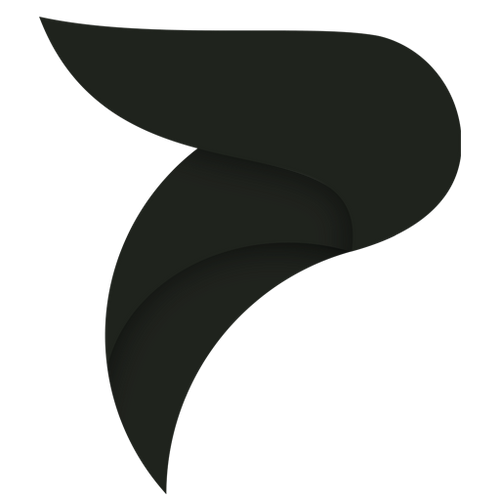AP—Port-au-Prince The Haitian judge probing the July 2021 killing of President Jovenel Moïse has accused his widow, Martine Moïse, ex-prime minister Claude Joseph, and former National Police head Léon Charles, among others, according to a report received Monday.
The indictments are anticipated to destabilize Haiti as it battles gang violence and recovers from violent rallies seeking Prime Minister Ariel Henry's resignation.
Walther Wesser Voltaire, the fifth judge to handle the probe after previous ones resigned for fear of being assassinated, indicted dozens of people in his 122-page report.
Charles, Haiti's permanent representative to the Organization of the American States and former police chief when Moïse was killed, faces multiple charges, including murder, attempted murder, illegal possession of weapons, conspiracy against state security, and criminal association.
Joseph and Martine Moïse, who were injured in the incident, are accused of both complicity and criminal association.
Charles and Martine Moïse's counsel did not respond to requests for comment.
The former prime minister Joseph accused Henry of “undermining” the probe and profiting from the president's murder in a statement to The Associated Press.
Henry is using the Haitian legal system to prosecute political opponents like myself. A typical coup d'état, Joseph said. “After failing to kill me and Martine Moïse on July 7th 2021, they are now using the Haitian justice system to advance their Machiavellian agenda.” 
Joseph again called on Henry to resign, noting that when prime minister, he urged the FBI to help local police investigate the crime and wrote to the U.N. and OAS.
“I will fight. Justice must be done, he declared.
According to the judge's report, Lyonel Valbrun, the former secretary general of the National Palace, reported that Martine Moïse exerted "strong pressure" on him to give Joseph the president's office to assemble a council of ministers.
Valbrun said that Martine Moïse spent around five hours in the National Palace, from 10 p.m. to 3 a.m., removing items two days before to her husband's murder.
Two days after Jovenel Moïse's murder, Martine contacted to inform him that Jovenel had not helped them. Office must be opened. The president instructed Ti Klod to form a council of ministers and arrange elections in three months so I may become president. We now have authority.
The paper does not specify Ti Klod, although previous prime minister Claude Joseph bore the name.
The judge reported that Martine Moïse sought sanctuary beneath the marital bed to avoid assailants, but officials concluded that even a large rat (35-45 cm) could not fit under the bed.
The court stated the former first lady's answers were "so tainted with contradictions that they leave something to be desired and discredit her."
Other suspects include Haitian-American pastor Christian Emmanuel Sanon, former DEA informant Joseph Vincent, presidential security chief Dimitri Hérard, former Haitian senator John Joël Joseph, and fugitive judge Windelle Coq.
Sanon, Vincent, and Joseph were transferred to the U.S., where 11 individuals face federal charges for killing Haiti's president. Three were sentenced.
After Monday's indictments, more than 40 Haitian suspects are in prison awaiting trial. It was unclear how soon one would be held. They include 20 ex-Colombian soldiers.
Jheyner Alberto Carmona Flórez's wife, Milena, said The Associated Press he is innocent.
“What's happening is that this crime is a conspiracy of great magnitudes in which powerful people are behind the scenes running everything, and that's why they're not given freedom,” she added of the former troops.
U.S. prosecutors allege a scheme in Haiti and Florida to pay mercenaries to abduct or assassinate Moïse, who was 53 when he was killed at his house outside Port-au-Prince.
Witnesses said the attack started late July 6 and concluded July 7.
Interrogated individuals, including Martine Moïse, reported hearing shooting from 1 a.m. for 30 to 45 minutes before armed men entered the presidential couple's bedroom.
As Moïse lay on the ground, she heard the assailants exclaim, "That's not it!" Not that! Not that!”
She stated the suspects used a video call to pinpoint their search while they assassinated the president. When she was face down, the suspects turned her head and tugged on a toe “to ensure that she wasn’t alive.”
Moïse stated she went to the ground and muttered to her husband about heading to the hospital after they left.
“That's when she noticed that the president was dead and that his left eye had been removed,” the article said.
Although Moïse stated that 30-50 police officers were expected to guard the presidential home, the court noticed that only a few were there that night. One cop reported hearing explosions and a loudspeaker yelling, "Do not shoot!" to the judge. A DEA operation! US Army! We know how many police are inside. Exit with two hands down."
Another officer said that the first lady's security chief discovered her “in critical condition” with her two children. He also spotted unidentified persons leaving the president's mansion “with briefcases and several envelopes in their possession.”
According to Inspector General André Vladimir Paraison, the president contacted him at 1:46 a.m. and said, “Paraison! Man, hurry! In trouble! Please save me immediately.” He stated heavily armed guys blocked his entry to the home.
Officers found bullet-holed automobiles, windows, and doors at the president's private house, as well as severed security cameras and a damaged lock on the double-wooden door to the presidential bedroom.
Some cops at the property were unarmed and handcuffed, while others “had time to throw themselves down a ravine” for safety, the judge added. The investigation also accused the presidential security chief of collecting $80,000 to bribe officers "to remain inactive" during the assassination.
The judge said "none of the police providing security to the head of state was in danger." Unfortunately, the president was easily assassinated.”
Coto reported from San Juan, Puerto Rico. Associated Press reporter Astrid Suárez in Bogotá, Colombia contributed. Read the original article here.


